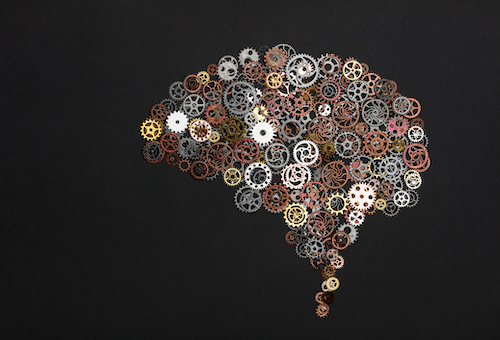With the increasing number of reported outbreaks of COVID-19, accompanied by disrupted routines as schools, workplaces, and businesses close in response, anxiety around the globe is mounting.
Anxiety can be thought of as a “future oriented emotional state that is experienced by all humans to varying degrees” (Grupe & Nitschke, 2013). Anxiety in response to uncertainty is normal.

If you’re experiencing anxiety during this time, you are not alone. In fact, anxiety levels have been increasing so much that the Center of Disease Control (CDC) issued guidelines to protect mental health during testing times. These guidelines include, but are not limited to the following:
1. Practice empathy and reduce stigma associated with COVID-19.
2. Use the terms that humanize individuals who have experienced COVID-19 and/or are have recovered or are in the process of recovering. For example, using terms such as “people with COVID-19” or “people who have recovered from COVID-19” and/or are recovering from COVID-19 as oppose to “victims,” or “COVID-19 cases.”
3. Avoid watching and listening to news that provokes anxiety or distress.
4. Find reliable sources of news such as your healthcare providers or the WHO website or the CDC website.
5. Seek information once or twice a day and at a specific time.
Disrupted Daily Routines
One way or another, each one of our lives are becoming affected by the evolving COVID-19 situation. Whether your child’s school has closed down, you are no longer able to visit your grandmother due to the latest visiting hour restrictions, your local business is forced to close, or you are working from home — routines are being changed; the impact of this could be minor, but for many, it is causing moderate to severe distress.
Self-Care
Anxiety levels can easily spin out of control if one is cooped up at home or have had one’s daily routine disrupted; it is more important than ever to maintain (or maybe begin to implement) self-care practices. Below are a few ways to do so:
Practice Mindfulness
Instinctually, during times like these, we may seek to distract ourselves. Ultimately, doing so will not help mitigate anxiety in the long run. Adopt mindfulness practices into your life. Mindfulness involves observing or noticing feelings and thoughts, whether it is about you or others, nonjudgmentally, and letting them pass. This is particularly relevant to the CDC’s mental health guidelines regarding the protection of mental health (practicing empathy and using humanizing terms).
Incorporate Meditation: Another mindfulness exercise to meditation. Meditation can be practiced any number of ways. Apps like Headspace or Calm may be helpful in beginning your practice.
Keep Moving
Exercise increases blood flow, levels of oxygen, and reduces levels of cortisol, a hormone that is linked to stress.
Additionally, physical exercise can help boost our immune systems. Experience from the Spanish Flu that struck after the end of World War I indicated that fresh air and sunlight are natural disinfectants.

If you’re not under quarantine, get outside. Walk, hike, jog, run, and/or bike. Get some fresh air but do keep your distance from others.
At-home exercises are widely available as well and include yoga, gentle stretching, and/or making use of the stairs.

Research indicates that this can boost your cognitive functioning and keep your anxiety at bay. Specifically, exercise has been shown to increase blood flow and perfusion in the hippocampi, a brain structure that is essential for memory. Exercise helps to improve cognitive function and protects the brain from age-related decline.

Pick Up an Old or New Hobby or Learn Something New –whether it’s an arts and crafts project, writing a book—or finishing one, there are many options available. Learn a new language, watch a Ted Talk, use this time as an opportunity to allow your brain to create and strengthen the connections between neurons.

Limit Time Spent Online
Per the CDC mental health protection guidelines, limit your time spent online. Chose two or three reliable sources, pick one or two times to check it a day and stick to it. If you still catch yourself falling prey to the media’s allure, it may be time to try using a website blocker or your screen time App on your iPhone. Some website browsers have browser extensions such as Chrome’s “Simple Blocker,” or “Self Control” for Apple Computers.
Check in with Others: Social distancing doesn’t have to mean social isolation. Call, skype, facetime. Get creative.
Continue to Maintain Healthy Habits
- Maintain a sleep regime of ideally 7-8 hours of a sleep a night.
- Eat well-balanced and nutritious meals.
- Practice hand washing and other methods of sanitation.
- Hydrate.
And finally, if you’re sick, stay home and contact your doctor. For more information about dealing with anxiety, please check out our previous blogs on www.neurogrow.com



